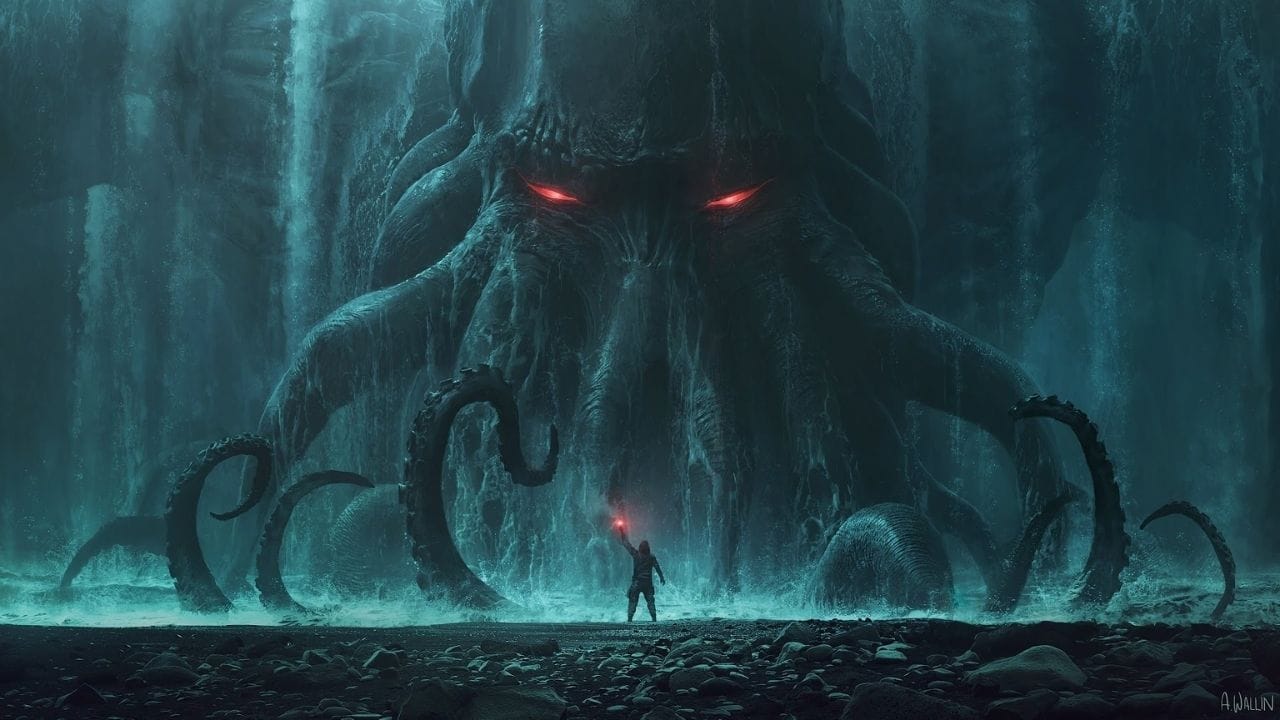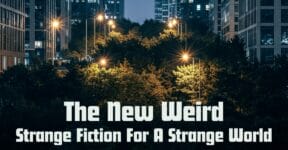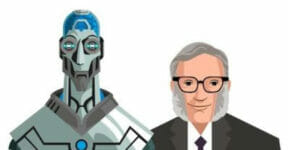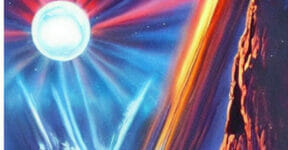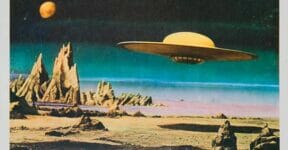Every time you hear someone mention “cosmic horror,” one of the first things to come to mind is H. P. Lovecraft, or rather the range of monsters he created, like Cthulhu, Shoggoths, Dagon, Nyarlathotep, and all the other gods and monsters that originated from his imagination. All those monsters have unnatural forms, rendering anyone who sees them insane. Lovecraft gave us monsters that were beyond our comprehension, and as a result, his creations have made us realize the sheer number of mysteries the world has been hiding from mere mortals. With his cosmic horror stories, he painted a picture where humans have always been insignificant in the universe’s grand scheme of things.

Cosmic horror is the proponent of speculations that question the very nature and purpose of humans, especially in the presence of ancient monsters with immeasurable powers. Lovecraft himself defined his genre as having the fundamental premise that human interests, laws, and emotions have no consequences whatsoever in the face of the cosmos. Based on the understanding that the universe is limitless, there are bound to be innumerable unknowns lurking in every corner. We don’t know what we don’t know. This sounds like a pretty standard blurb for sci-fi horror books because it promises excitement and mysteries, yet still leaves so much room for interpretation.
And for the same reason, cosmic horror didn’t stop with Lovecraft. Instead, it continues to evolve, in a fashion similar to just about every other genre out there, by incorporating new anxieties, fresh perspectives, monsters that break Lovecraft’s archetypes, and modern technologies to decipher the otherwise inexplicable mysteries. That said, the major element of human insignificance in the cosmos remains the core subject matter.
Let’s make one thing clear here: cosmic horror is different from space horror like Alien or Event Horizon, although some ideas between the two subgenres do overlap, particularly in the aspect where humans are probably hopeless when confronted by a power or monster they don’t understand. Cosmic horror also isn’t a slasher or a ghost story; it’s all about the unknowable—some sort of force that exists in an entirely different dimension from humans, although both may inhabit the same world. Not only are these monsters indifferent to human suffering, but they’re also actively hostile.
In Lovecraft’s most famous work, “The Call of Cthulhu,” you’re introduced to an ancient monster dwelling in the depths of the ocean. In the story, some of the characters can’t even begin to describe this creature because it’s so alien, too horrifying, and outside the norm. This monster is oblivious to humanity, and for most of the time, it couldn’t care less about what people do throughout their lives. But there’s a catch: Cthulhu—as the monster is called—shouldn’t be disturbed, or it will wreak havoc of an unfathomable kind. And it probably doesn’t even have to exert itself. Such an overwhelming sense of human helplessness is what makes cosmic horror a terrifying read, and Lovecraft captured it with perfection.
After Lovecraft
The myth of Cthulhu, and by extension the entire subgenre of cosmic horror, has been reawakened and reimagined by dozens of authors, from Stephen King to Thomas Ligotti, to name a few. While the former is best known for his take on the fantasy and mystery genres, the latter made a name for himself through his works in weird fiction. As a matter of fact, Ligotti is probably the closest to being a dedicated cosmic horror author, with novels like The Sect of the Idiot, where there’s an explicit reference to Lovecraft’s Cthulhu Mythos. Another of his popular short stories, “The Last Feast of Harlequin,” is also unmistakably Lovecraftian.
Strangely enough, Ligotti is very rarely mentioned as a cosmic horror author. Most critics describe his works as philosophical horror influenced by gothic fiction. That being said, the pessimistic and nihilistic worldview observed in Ligotti’s fiction and nonfiction writings certainly goes hand-in-hand with the characteristic human powerlessness found in cosmic horror. The monsters might be different, and the characters probably face different kinds of predicaments, but Ligotti’s literary works are clearly influenced by, if not originating from, the brilliance of Lovecraft’s writings.
We think, at its core, cosmic horror is an admission that humans in the universe have been living in a pretty hermit-like existence. There’s still not enough evidence to suggest that there’s another intelligent civilization on a different planet somewhere in the cosmos. In sci-fi horror books and films, we often question whether we’re alone. It’s possible that we “only think” we’re alone because we haven’t found any indication to disprove it. What if a superior species does exist, and the survival of humanity in its entirety is at their mercy? That, in a nutshell, is cosmic horror, from the early days of Lovecraft to the contemporary ideas presented by Thomas Ligotti.
How do you tell the difference between weird fiction and cosmic horror? If there are elements of science fiction in a cosmic horror narrative, how do you define the genre then? We’d love to hear from you.
Other Things You Might Want to Know
Some films described as “Lovecraftian” by fans and critics alike:
- The Whisperer in Darkness (2011)
- The Void (2016)
- Underwater (2020)
- The Thing (1982)
- Sacrifice (2020)
- The Ritual (2017)
- Necronomicon (1993)
- In the Mouth of Madness (1994)
- The Haunted Palace (1963)
- From Beyond (1986)
- Dagon (2001)
Cosmic horror books not written by Lovecraft or Ligotti:
- The Drowning Girl by Caitlin R. Kiernan
- The Ballad of Black Tom by Victor LaValle
- Lovecraft Country by Matt Ruff
- A Lush and Seething Hell by John Hornor Jacobs
- Catfish Lullaby by A. C. Wise
- She Walks in Shadows, edited by Silvia Moreno-Garcia and Paula R. Stiles
- Dreams from the Witch House: Female Voices of Lovecraftian Horror, edited by Joyce Carol Oates
- American Elsewhere by Robert Jackson Bennett
Popular books by Thomas Ligotti:
- Songs of a Dead Dreamer (1986)
- Grimscribe: His Lives and Works (1991)
- Noctuary (1994)
- The Agonizing Resurrection of Victor Frankenstein and Other Gothic Tales (1994)
- The Nightmare Factory (1996)
- My Work Is Not Yet Done: Three Tales of Corporate Horror (2002)
- The Shadow at the Bottom of the World (2005)
- Teatro Grottesco (2006, reprinted in 2008)
- The Conspiracy Against the Human Race (2010)

